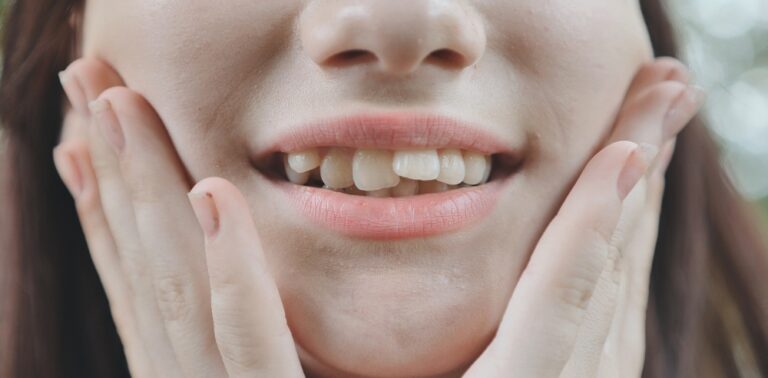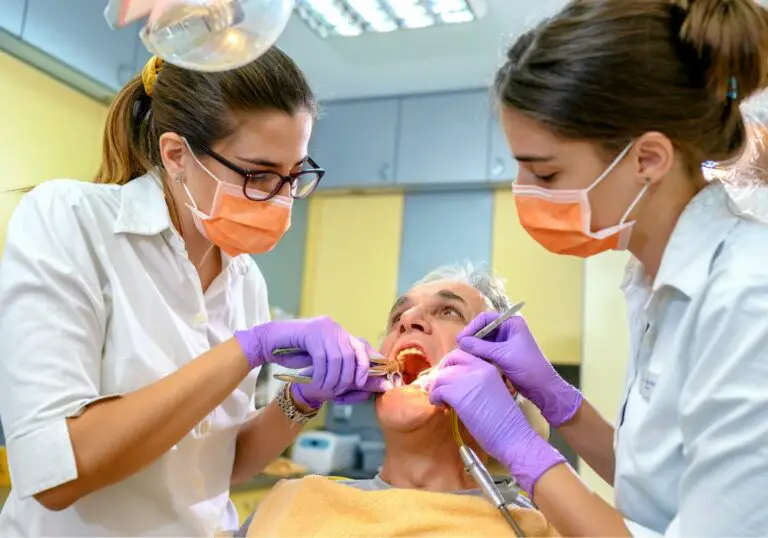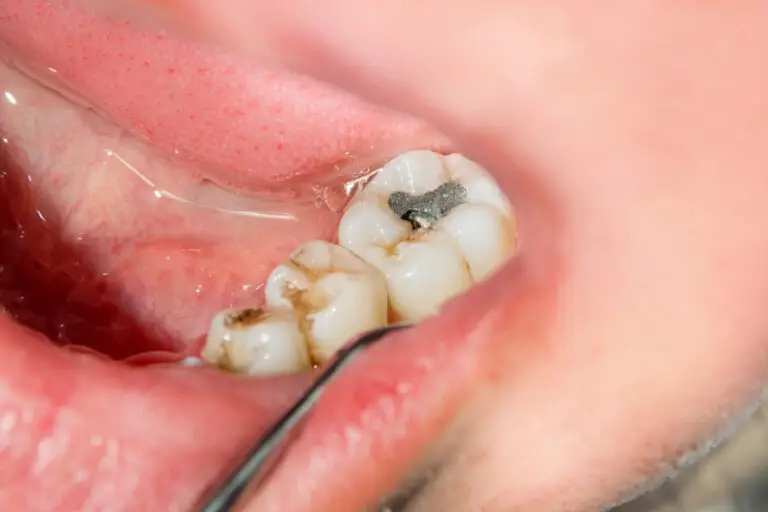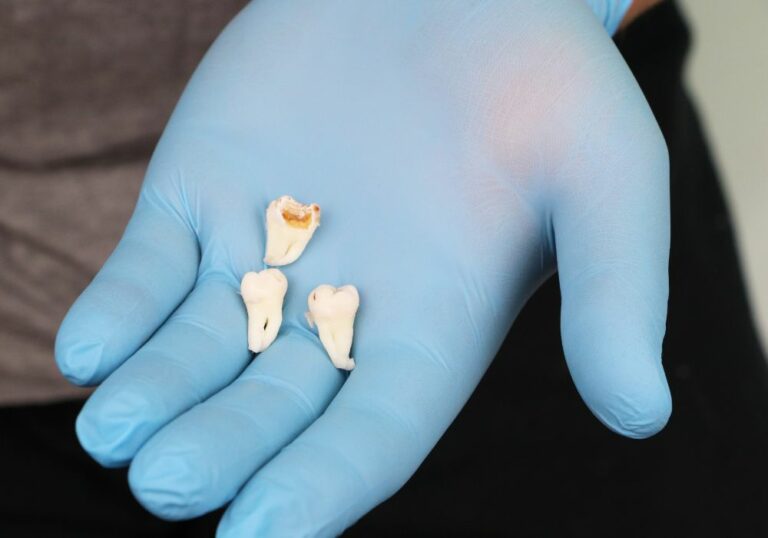Do all milk teeth go away? As a parent, it’s natural to have questions about your child’s dental health. One common question is whether all milk teeth go away or if some of them remain. The short answer is that all milk teeth will eventually fall out, but the timing and order can vary.
Milk teeth, also known as baby teeth, serve an important purpose in a child’s development. They help with speech development, chewing, and maintaining space for the permanent teeth that will eventually replace them. Typically, children have 20 milk teeth that begin to come in around 6 months of age and continue to erupt until around age 3. These teeth will then begin to fall out, usually starting around age 5 or 6, and will be replaced by permanent teeth.
It’s important to note that the order in which milk teeth fall out can vary from child to child. Generally, the first teeth to come in are the first to fall out, but this is not always the case. Additionally, some children may experience complications with their milk teeth, such as delayed eruption or early loss, which can impact the timing of the transition to permanent teeth. If you have concerns about your child’s dental health, it’s always best to consult with a pediatric dentist.
Understanding Milk Teeth
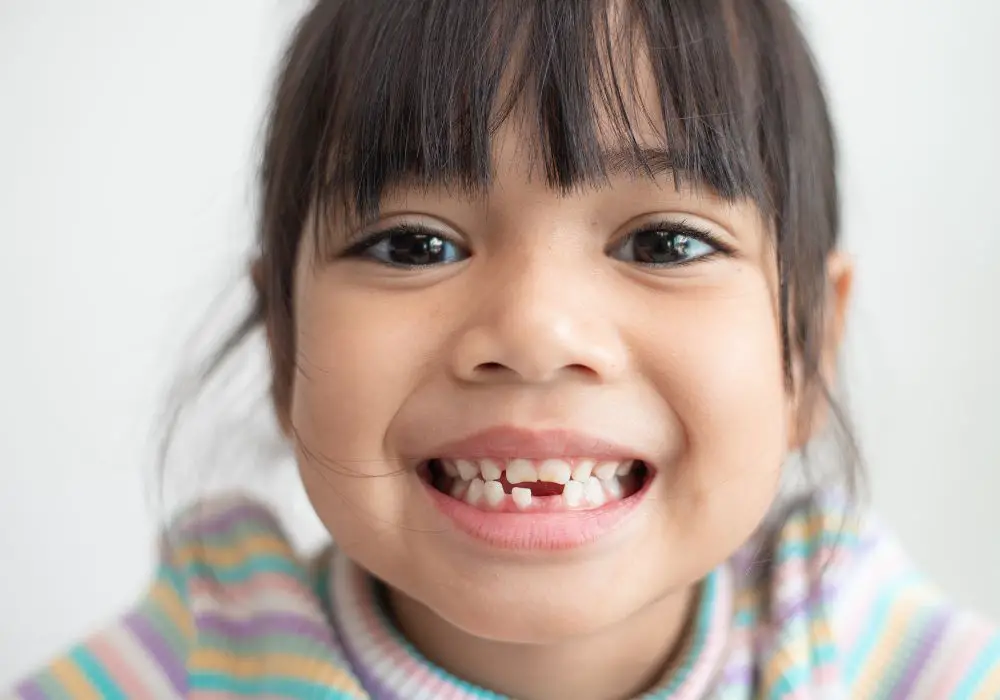
What are Milk Teeth?
Milk teeth, also known as baby teeth or primary teeth, are the first set of teeth that develop in a child’s mouth. They are called milk teeth because they are as white as milk. Children usually have 20 milk teeth, which start to come in at around 6 months of age.
Milk teeth serve an important role in a child’s development. They help children to chew food, speak properly, and maintain the right amount of space in their mouth for their permanent teeth to come in.
When Do They Appear?
Milk teeth generally start to appear at around 6 months of age, but the timing can vary from child to child. The first teeth to come in are usually the bottom front teeth, followed by the top front teeth. The rest of the teeth will come in over the next two years, with the molars being the last to appear.
By the age of three, most children will have a full set of milk teeth. These teeth will start to fall out at around the age of five or six, making way for the permanent teeth to come in.
It’s important to take care of your child’s milk teeth, as they can affect the health of their permanent teeth. Tooth decay in milk teeth can lead to infections and other problems that can affect the development of the permanent teeth. Regular dental check-ups and good oral hygiene habits can help to prevent these issues.
In summary, milk teeth are an important part of a child’s development. They help children to chew, speak, and maintain the right amount of space in their mouth for their permanent teeth. Taking care of your child’s milk teeth is important for their overall oral health.
The Process of Losing Milk Teeth
Losing milk teeth is a natural process that every child goes through. It is a sign that their permanent teeth are growing and developing. In this section, we will discuss the triggers that initiate the loss of milk teeth and the typical sequence of loss.
What Triggers the Loss?
The loss of milk teeth is triggered by the development of permanent teeth. As the permanent teeth grow and develop, they push against the roots of the milk teeth, causing them to become loose. The roots of the milk teeth eventually dissolve, and the teeth fall out.
Typical Sequence of Loss
The sequence in which milk teeth are lost can vary from child to child, but there is a general pattern that most children follow. Here is a typical sequence of loss:
- The lower front teeth (central incisors) are usually the first to go, usually around the age of 6 or 7.
- The upper front teeth (central incisors) are usually the next to go, around the age of 7 or 8.
- The lateral incisors (the teeth next to the front teeth) are usually lost around the age of 8 or 9.
- The first molars (the large teeth at the back of the mouth) are usually lost around the age of 10 or 11.
- The canines (the pointed teeth next to the lateral incisors) are usually lost around the age of 11 or 12.
- The second molars (the last teeth at the back of the mouth) are usually lost around the age of 12 or 13.
- The third molars (wisdom teeth) usually come in between the ages of 17 and 21.
It is important to note that the sequence of loss can vary from child to child, and some children may lose their teeth earlier or later than the average age range. If you have concerns about your child’s tooth development, it is best to consult a dentist.
Importance of Milk Teeth

Milk teeth, also known as primary teeth or baby teeth, play a crucial role in a child’s oral health and development. Here are two important roles that milk teeth play:
Role in Speech Development
Milk teeth help children learn to speak properly. They help in the formation of certain sounds and words. When a child loses a milk tooth too early, it can affect their speech development and lead to speech problems.
Role in Eating and Nutrition
Milk teeth also play an important role in a child’s nutrition. They help in biting, chewing, and grinding food, which is necessary for proper digestion. If a child loses a milk tooth too early, it can lead to poor nutrition and affect their overall health.
It is essential to take good care of your child’s milk teeth to ensure they stay healthy until they are ready to fall out naturally. Here are some tips to help you take care of your child’s milk teeth:
- Brush your child’s teeth twice a day with a soft-bristled toothbrush and fluoride toothpaste.
- Limit sugary and acidic foods and drinks, as they can cause tooth decay.
- Encourage your child to drink plenty of water, which helps wash away food particles and bacteria.
- Take your child for regular dental check-ups to identify any potential problems early on.
By taking good care of your child’s milk teeth, you can help ensure they develop healthy permanent teeth and maintain good oral health throughout their life.
Taking Care of Milk Teeth
As a parent, taking care of your child’s milk teeth is crucial for their oral health and overall well-being. Here are some tips to help you ensure your child’s milk teeth stay healthy and strong.
Proper Oral Hygiene
Good oral hygiene practices should start as soon as your baby’s first tooth appears. Here are some tips to help you take care of your child’s milk teeth:
- Brush your child’s teeth twice a day with a soft-bristled toothbrush and a pea-sized amount of fluoride toothpaste.
- Teach your child how to spit out the toothpaste and rinse their mouth with water after brushing.
- Avoid giving your child sugary drinks or foods, especially before bedtime.
- Encourage your child to drink water after meals to help rinse away any food particles.
Regular Dental Check-ups
Regular dental check-ups are essential for your child’s oral health. Here’s what you need to know:
- Schedule your child’s first dental visit when their first tooth appears or by their first birthday.
- After the first visit, schedule regular dental check-ups every six months.
- During the check-up, the dentist will examine your child’s teeth and gums, clean their teeth, and apply fluoride treatment if necessary.
- The dentist will also check for any signs of tooth decay or other dental problems and provide recommendations for treatment if needed.
By following these tips, you can help ensure your child’s milk teeth stay healthy and strong, setting them up for a lifetime of good oral health.
Common Problems with Milk Teeth
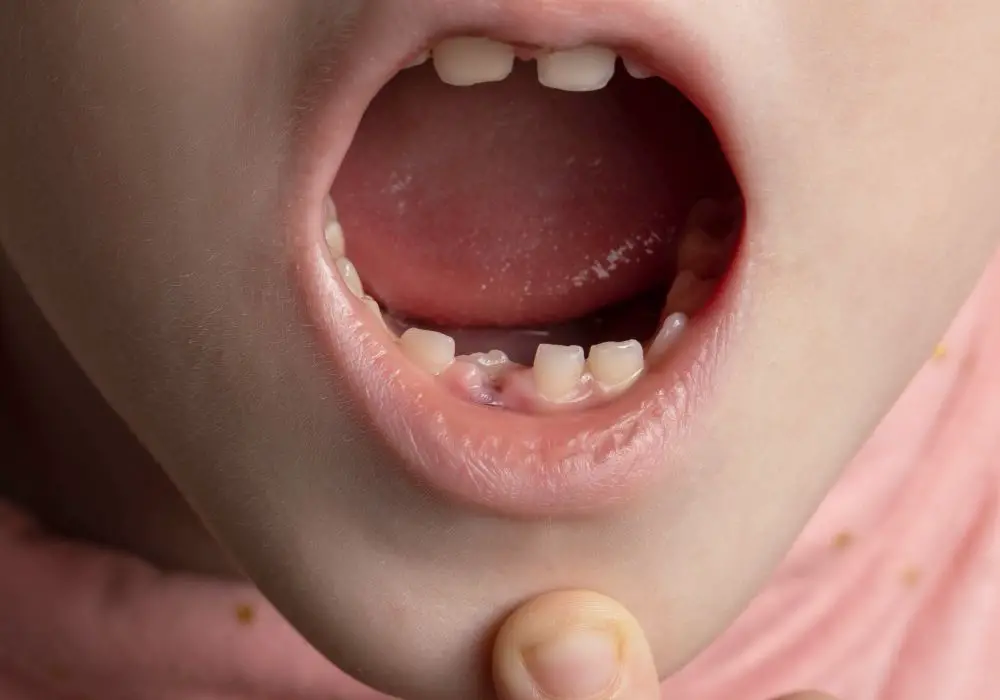
Milk teeth, also known as baby teeth, are the first set of teeth that develop in a child’s mouth. They usually start to come in around six months of age and are replaced by permanent teeth around the age of 6. While most children lose their milk teeth without any problems, there are some common issues that can arise.
Early Tooth Loss
Early tooth loss occurs when a milk tooth falls out before it is ready to be replaced by a permanent tooth. This can happen for a variety of reasons, including injury, decay, or genetics. If a milk tooth is lost too early, it can cause problems with the development of the permanent teeth.
To prevent early tooth loss, it is important to take good care of your child’s teeth. This includes brushing twice a day, flossing daily, and visiting the dentist regularly. If your child does lose a milk tooth early, it is important to talk to your dentist about possible solutions, such as a space maintainer.
Delayed Tooth Loss
Delayed tooth loss occurs when a milk tooth does not fall out when it should. This can happen for a variety of reasons, including genetics, injury, and overcrowding. If a milk tooth is not lost on time, it can cause problems with the development of the permanent teeth.
If your child’s milk teeth are not falling out on time, it is important to talk to your dentist. They may recommend an X-ray to check the development of the permanent teeth. In some cases, the dentist may need to remove the milk tooth to allow the permanent tooth to come in properly.
In conclusion, while most children lose their milk teeth without any problems, there are some common issues that can arise. Early tooth loss and delayed tooth loss can both cause problems with the development of the permanent teeth, so it is important to take good care of your child’s teeth and talk to your dentist if you have any concerns.
Frequently Asked Questions
When do baby teeth typically fall out?
Baby teeth, also known as milk teeth, typically start falling out around the age of 5 or 6. The first teeth to fall out are usually the lower front teeth, followed by the upper front teeth. The process of losing baby teeth usually continues until the age of 12 or 13 when all the adult teeth have grown in.
How many teeth will fall out?
Children have 20 baby teeth, and all of them will eventually fall out. The exact number of teeth that fall out at any given time varies from child to child, but it usually takes a few years for all of the baby teeth to come out.
What happens if baby teeth don’t fall out?
In some cases, baby teeth may not fall out on their own. This can happen if the adult teeth are not growing in properly or if there is overcrowding in the mouth. If this happens, it is important to see a dentist who can determine the best course of action.
At what age should baby teeth be removed?
Baby teeth should not be removed unless there is a dental issue that requires it. In some cases, a dentist may recommend removing a baby tooth to make room for adult teeth or to prevent overcrowding. However, this is usually only done in extreme cases.
Can baby teeth be permanent?
No, baby teeth are not permanent. They are meant to fall out to make way for adult teeth. However, it is important to take care of baby teeth as they can affect the health of adult teeth.
Do premolars fall out and grow back?
Yes, premolars are baby teeth that fall out and are replaced by adult premolars. This usually happens around the age of 10 or 11. It is important to take care of baby premolars as they can affect the health of adult teeth.

